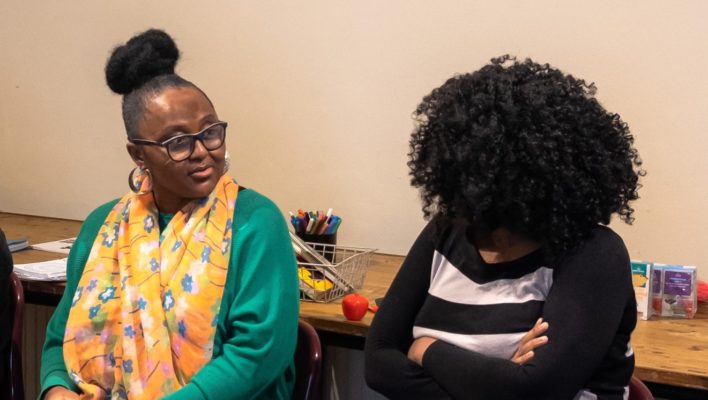What well-being is, and how to create the conditions for it to flourish

At ATD Fourth World, we organise ‘Well-Being Days’ to support people experiencing poverty. Adults and families can take time away from the day-to-day pressures of life in poverty, express their creativity and meet peers. In a world where society is increasingly concerned with well-being as a human right, it is important to ensure that no one is excluded from it.
Humans need emotional security, strong relationships, and community ties to thrive. People with lived experience of poverty have long reported to ATD the isolation, judgement and emotional struggles they go through. That is why working towards social justice also involves providing emotional support and strengthening connections within communities.
What is well-being?
Understanding poverty means recognising that its impact goes far beyond financial hardship. It includes social and institutional maltreatment, emotional suffering, material and social deprivation, and having one’s contributions remain unrecognised. In the UK, poverty restricts horizons, limits options, and leaves very little time for creativity and self-care. That is why ATD offers the opportunity to families to get away from it all, feel supported, and express their talent. Those activities are part of our “Together in Dignity” programme, which promotes social inclusion and well-being.
A recent study conducted by Carnegie UK and Ipsos shows that people with lower household income and those living in deprived areas experience lower levels of collective well-being than others in the UK. This study measures well-being in four different areas: social well-being (having connections and access to services); economic well-being (a decent living standard); democratic well-being (participation and trust in institutions); and environmental well-being (access to a high-quality environment). People experiencing poverty report lower levels of well-being, compared to the average score of the UK population, in each of these areas.
Well-being means more than physical health. It involves feeling good about yourself and your life, and feeling supported. Families tell us it is also being at peace, and having time to rest — a luxury not everyone has.
“Well-being, to me, means having a good rest and less worry. It is when you get rid of stress, and when you are at peace, that you can feel joyful.”
– Lareine, a mother
At ATD Fourth World, we organise Well-Being Days during which parents and children enjoy arts and crafts, playtime, and making connections with others. Parents can chat with peers and ATD team members in a space free of judgment. Families take time away from the day-to-day pressures of life in poverty, and express their creativity in art workshops. This creates space to “have a clear mind”; it’s a way of hitting pause for a moment of relief from the daily struggles and worries of life in poverty.
Taking part in something that helps
Lareine started coming to Well-Being Days with her sons years ago. She met ATD when she was struggling and raising her children by herself. She was physically and emotionally exhausted, she says.
She was first invited to spend a few days in Surrey at Frimhurst Family House with her children; and later to Family Well-Being Days in London. She says: “At first I couldn’t rest, because I wasn’t used to peacefulness”. But with time, she could finally relax:
“I was back to myself. I was full of energy. I was healed”.
She says those moments helped her immensely; she felt supported and valued as a human being.
“Every single moment is so special. You feel welcome, you feel equal, you feel safe, you’re happy.”
She is now attending those days as a peer support volunteer, creating relationships with new families and listening to their stories. She says: “When you know something is helping, you just want to be part of it. The same shoulder to cry on, the same ear they gave me…. Let me also do it for someone else”.
Giving, whether by offering time or a material gift, is also essential for individual and collective well-being. It helps strengthen connections and gives us a purpose. “I want to show my gratitude. The only thing I can give ATD is my time – and this is why I always help when I can”, Lareine explains.
You can read more information about our Community Outreach projects on our website, and find ways to support us on this page.

